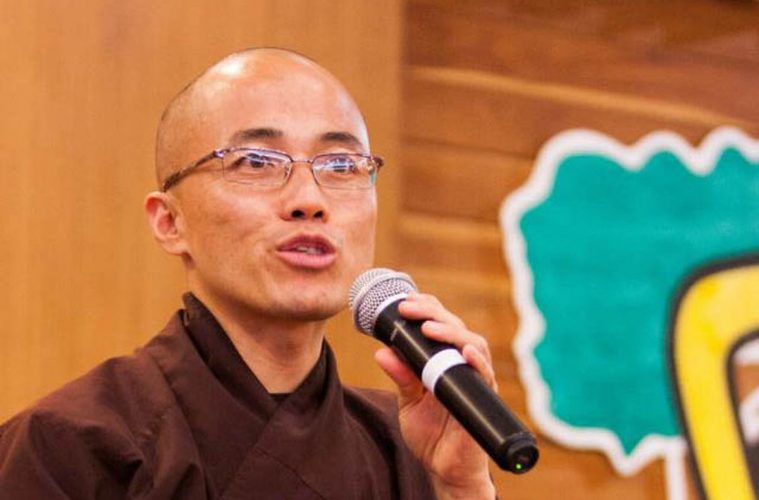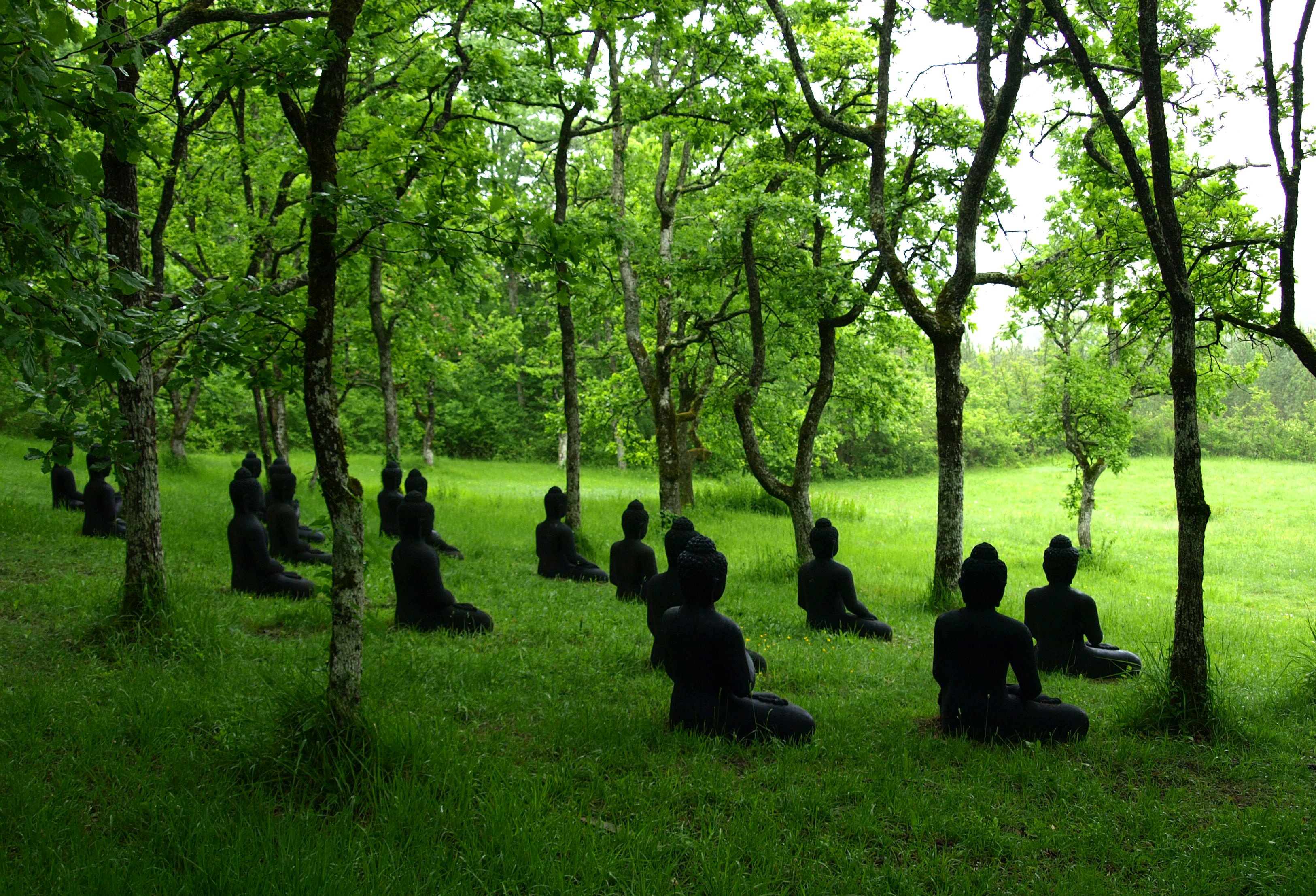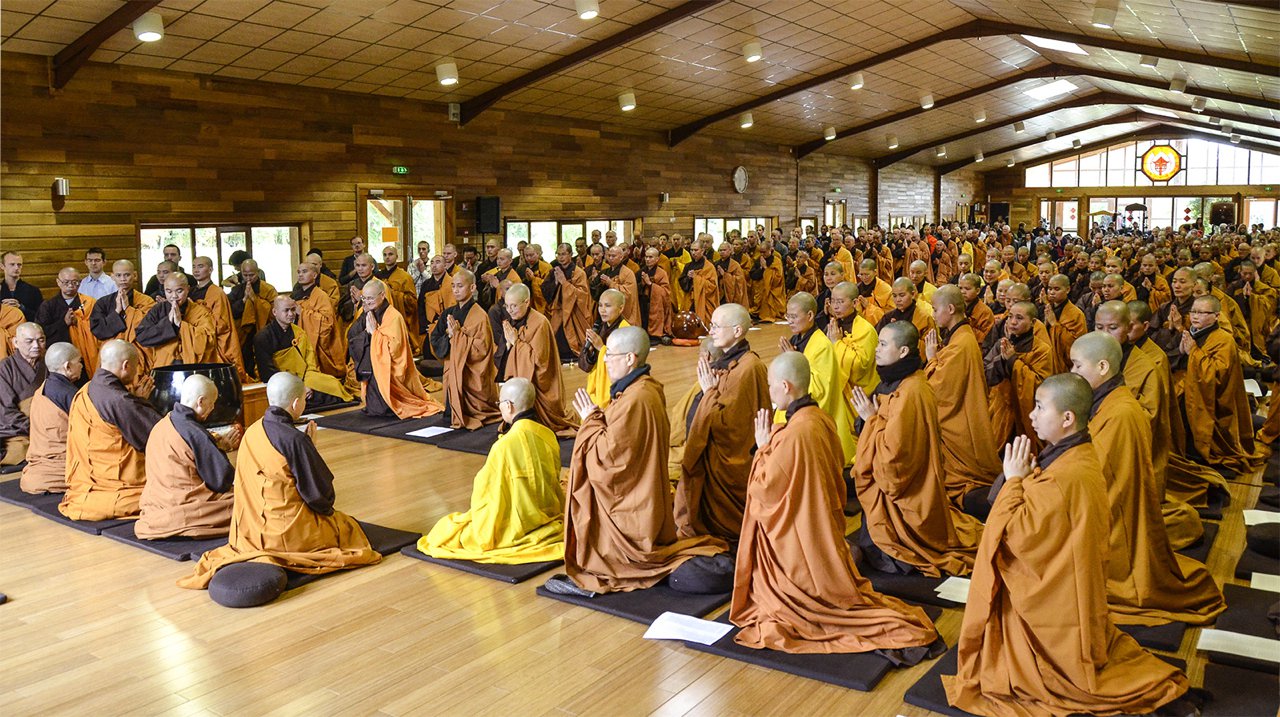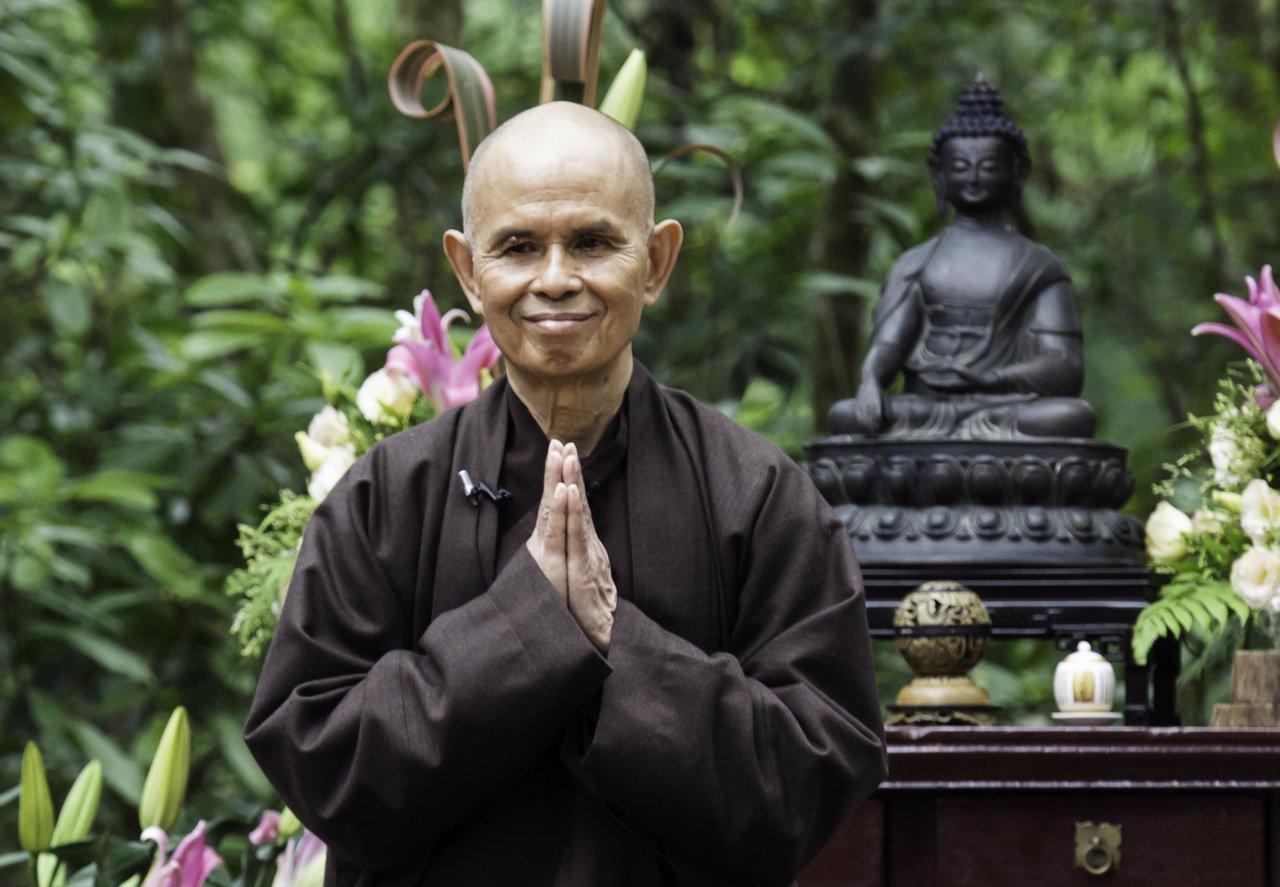
Brother Phap Dung is a Vietnamese American who has been residing in Plum Village, a Buddhist meditation centre founded by two Vietnamese monastics, Chân Không and Thích Nhất Hạnh, for the last six years.
You might be familiar with Thích Nhất Hạnh, a Buddhist monk and peace activist who has written more than 100 books, including The Miracle of Mindfulness and Peace is Every Step. He also coined the term “Engaged Buddhism,” which refers to Buddhists who are “seeking ways to apply the insights from meditation practice and dharma teachings to situations of social, political, environmental, and economic suffering and injustice.” In 2014, Thích Nhất Hạnh suffered a stroke and has made few appearances since. He has been living at Plum Village, located in the south of France, since 2016.
Brother Phap Dung, a senior disciple of Thích Nhất Hạnh, had a Skype interview with Eliza Barclay, an editor at Vox, about the Buddha’s psychological teachings on fear.
Barclay questioned Phap about his opinion on Trump and asks how America can better manage their emotions through all the uncertainty created during this presidency. “As a collective energy, fear and anger can be very destructive. We make the wrong decisions if we base it on fear, anger, and wrong perception. Those emotions cloud our mind. So the first thing in the practice that we learn from the Buddhist tradition is to come back and take care of our emotion. We use the mindfulness to recognize it,” he says.
He also shares his opinion on anger, a natural reaction many Americans are experiencing during this presidency:
People are so convinced that anger and all this energy will produce change. But in fact it’s very destructive, because you’re opposing. Opposition wastes energy. It’s not healing.
Emotions can be good. Passion can be good, and compassion is very passionate. But compassion doesn’t waste energy. It includes and it understands; it’s more clear.
Engage in protest, but not from a place of anger. You need to express your opinion, and you need to go out there and say this is wrong. But don’t do it by saying hateful things. In a way, we Buddhists look more at energy than personality. That helps us be wiser.

Phap goes on to share some interesting perspectives on Trump that reflect points we also raised in an article detailing our stance on Trump. He says, “Trump is not an alien who came from another planet. We produced Trump, so we are co-responsible. Our culture, our society, made him. We love to pick somebody and make them the object. But it’s deeper than that. We have to see him inside of us.”
Elizabeth expresses how difficult it is for Americans to show compassion during these times, as they are afraid it will make them “passive” and therefore run the risk of getting hurt. Yet Phap explains that compassion can be active, too:
Compassion is not sitting in your room; it’s actually very active and engaging.
Trump is not an alien who came from another planet. We produced Trump, so we are co-responsible. Our culture, our society, made him. We love to pick somebody and make them the object. But it’s deeper than that. We have to see him inside of us.
We’re shocked because we found out there’s a member of our family that we’ve been ignoring. It’s time to listen and really look at our family.
We are afraid to engage, but you can dialogue and debate. It requires a lot of practice to sit there and listen, and not judge so you can understand.
You cannot end discrimination by calling the other names. All the people who voted for him are not bigots and racists and women haters. We are all judgmental, sometimes even a bit racist.
What’s in my heart is that people find the patience and clarity to listen before they start to blame and criticize.
Phap also expresses his admiration for Bernie Sanders and his decision to speak publicly about the illusion under which Americans are living. Bernie not been shy about his belief that it doesn’t matter who wins the presidency, since he or she will remain under the control of corporations.
Phap shares his own perspective of the media as well, saying, “Our society is very vulnerable to being very polarized and that’s what the media is taking advantage of. We have to be really careful. I don’t follow politics a lot, but because of my background and my teacher and how I come from a war, I had to look at some of these things. I’m not fooled by the media anymore.”

Assuming that we’ve stabilized our emotions when it comes to taking action, he suggests going out in nature and finding out exactly what it is you want to change instead of operating out of despair. It is then that we can go out and truly help others: “Our friend may be somebody who is being discriminated against. You can only be there to offer them that kindness if you are stable. You cannot help them if you are filled with hate and fear. What people need is your non-fear, your stability, solidity, clarity. This is what we can offer.”
We’ve explored the benefits of meditation extensively here at CE, and Phap offers further guidance for how it can help to calm our minds and connect us to one another. He says, “When you sit with someone who’s calm, you can become calm. If you sit with someone who’s agitated and hateful, you can become agitated and hateful.”
He also stresses meditation is a practice that has no setting, no rules; it can take place any time we remember our presence: “It can happen right in whatever activity you’re doing — while walking, in the office. It means you are there, present with calm and peace. With a breath, you can bring calm, clarity and rest your thinking.”
Phap also explains the importance of deep listening. Plum Village has hosted many retreats, inviting both Israelis and Palestinians, and spends three days preparing both groups to listen to one another through exercises like walking and meditation. Even political strife can be overcome in this way.
“Both sides are suffering — they may have different levels of suffering — but both sides are suffering. People don’t want to be hateful or harming. We keep that in mind. The wake-up call is to not to be too quick. That’s the hard part. When someone hates, it’s hard for us to accept that and listen. But to find relief, we have to listen,” he says. When Buddhist practitioners choose to get involved in politics, they have to be inclusive.
So how can we properly deal with a family member or friend we anticipate disagreeing with?
Drop all expectations.
He explains:
The way I practice is that you cannot ask people for what they do not have. You only make yourself suffer. So you don’t need to try and convince them. Don’t put stuff in their box they’re not going to want. It’s a waste of saliva.
When there is discrimination, you can use the opportunity to increase understanding. You can concentrate on what makes you happy; there are other elements in this person, not just the prejudice. You have to find also the good qualities in them. Don’t focus on wrong views because that makes you angry.
This is not wishful thinking or deluded thinking. This is taking care of yourself. Only when you can do that — when you can be a good listener and be nonjudgmental — is a dialogue possible.
When I think I am right, I am on a course for a lot of conflict. Because I am stuck with my own views and not open to other people. So I suffer. When I see that in other people, I see they are suffering. Maybe kindness is there. Their viewpoints may not be correct, but their heart may be kind.
Barclay also asked Phap how we can best prepare for the future, and he offers a uniquely positive response focused on individual accountability:
The future is built with the present moment and how we take care of it. If you are fearful, the future will be fearful. If you are uncooperative, the future will be divisive. This is very important.
The future is not something that will come to us; the future is built by us, by how we speak and what we do in the present moment.
Community practice is crucial at this time. It’s crucial not to be alone in front of the computer, reading media. That makes the world dark for you. Find flesh. There are still wonderful things happening.
And what does Phap’s mentor, Thích Nhất Hạnh, think of Trump? “I heard that he took his left hand; he went like this (opens palm). You can interpret that all you want.”
Get Your In Depth Numerology Reading
Your life path number can tell you A LOT about you.
With the ancient science of Numerology you can find out accurate and revealing information just from your name and birth date.
Get your free numerology reading and learn more about how you can use numerology in your life to find out more about your path and journey. Get Your free reading.
Source Article from http://feedproxy.google.com/~r/Collective-evolution/~3/Y0RdTBsbS7o/
Related posts:
Views: 0
 RSS Feed
RSS Feed















 November 3rd, 2017
November 3rd, 2017  Awake Goy
Awake Goy 

 Posted in
Posted in  Tags:
Tags: 
















